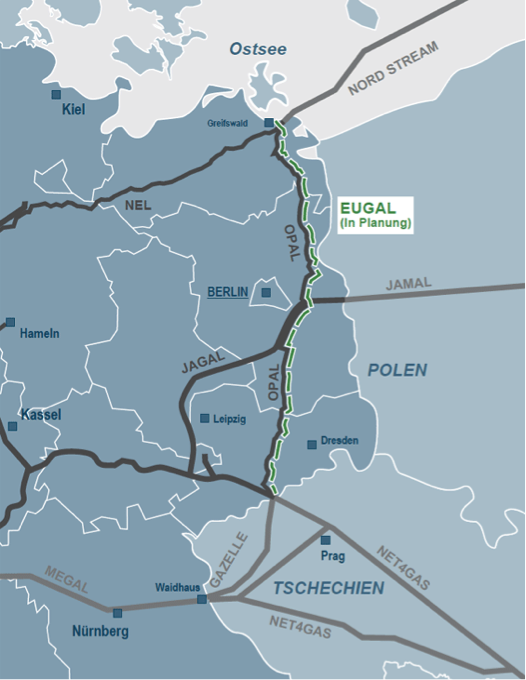by Elisabeth Nguebana
This week’s issue looks at the North Stream 2 disagreement, the Donbass Blockade, and South Korean refiner SK purchase of Russian Urals crude for the 1st time in a decade.
Gazprom’s pipeline ambition faces test in European courts
Gazprom’s Nord Stream 2 project faces a test in European courts, as Poland, the main opponent to the project “seeks to extend an injunction curbing the Russian group’s access to a distribution pipeline”. Opponents of Nord Stream 2 pipeline claim that it will put Ukraine in a difficult economic situation, and increase European dependence on Russian gas. In December, Poland won a temporary court decision stopping Gazprom rights to use Opal (pipeline that distributes gas from Nord Stream 1 to Germany and beyond). Data showed that gas flows through the Opal pipeline fell by 27 million cubic meters/day (mcm/day) to 64 mcm/day. The European Court of Justice will soon decide whether this decision will be extended or not. If it will be extended, it will cancel Gazprom’s exemption from EU rules (mainly the third party access) and cancel Gazprom’s right to use all Opal’s capacity. If the decision is not extended, then opponents argue that it will serve as a model for doing the same thing with Eugal (European Gas Pipeline Link, running from the Baltic Sea through Mecklenburg-Western Pomerania and Brandenburg to southern Saxony and from there over the border to the Czech Republic – see Figure 1): “Were Poland to fail in its attempt to block Gazprom’s Opal exemption it would help Nord Stream 2 AG to argue for a similar exception for Eugal.”

Donbass and the problem of coal supply disruption
Since December 2016, a blockade has been carried out from pro Ukrainian nationalist groups against the self-proclaimed Donetsk People’s Republic (DPR) and Lugansk People’s Republic (LPR). The Donbass region is rich in coal and is sold to the western part of the country. This is also one of the main resources that empowers the separatists budget. Hence, the western fighters for Ukraine took aim at this resource to bankrupt the sources behind the two republics. Consequently, the Ukrainian government declared a state of emergency for the country’s energy sector.to declare a state of emergency for the country energy sector.
The paradox of the coal blockade is that it also starves the western companies and citizens from access to cheap domestic coal, threatening production in several factories and possible electricity blackouts. As if the situation wasn’t hard enough, 700 tanks without insignias appeared on the eastern front in what looks like a possible escalation of the conflict. Both Russia and Ukraine denied any involvement in the appearance of these tanks, implicitly accusing each other.
Russia’s pivot to Asia: Lukoil sells 1 million barrels to South Korea
Top South Korean refiner SK Innovation Co. is set to receive about 1 million barrels of Urals crude in its first purchase of the Russian blend oil in a decade. The shipment was made viable after OPEC’s agreement to cut production and because of rising costs for rival supply from the Middle East. This is an example how these reductions are rerouting the flow of oil across the globe.
Gulf countries cannot increase production to meet additional demand in Korea, whereas in Russia, such opportunities exist due to reduced exports to the West. Last year, Gulf countries, such as Iran and Saudi Arabia, increased their presence is the European oil market, while Russia increased its influence in Asia. Three years ago, Russia was ranked third in terms of volumes of oil supplies to China, but by the end of 2016 it became China’s major supplier.
Thus, deliveries to South Korea of Urals crude oil intended for European markets, can be considered another important step in Russia’s pivot towards the East.
Elisabeth Nguebana is a student of the ENERPO Program, European University at Saint Petersburg. She can be contacted via email mnguebana @ eu.spb.ru

